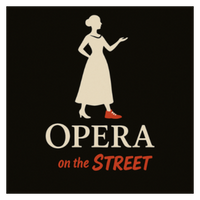Discover Opera Resources for Young Learners
- Oct 29, 2025
- 4 min read
Updated: Oct 30, 2025
Opera is a unique art form that combines music, drama, and storytelling. Introducing young learners to opera can spark creativity, improve listening skills, and deepen their appreciation for the arts. However, finding the right resources to engage children can be challenging. This post explores a variety of opera resources designed specifically for young audiences, making the experience enjoyable and educational.
Why Opera Matters for Children
Opera offers more than just entertainment. It helps children develop language skills through lyrics and dialogue, enhances emotional intelligence by connecting with characters, and encourages cultural awareness by exposing them to stories from different times and places. Early exposure to opera can also boost confidence and creativity.
Children often respond well to the combination of music and storytelling. The dramatic elements of opera make it easier for them to follow the plot and understand emotions. This makes opera a powerful tool for learning and growth.
Types of Opera Resources for Young Learners
There are many ways to introduce children to opera. Resources come in different formats, each suited to various learning styles and interests. Here are some popular types:
Children’s Opera Performances
Many opera companies offer special performances tailored for young audiences. These shows often have shorter running times, simplified plots, and interactive elements to keep children engaged.
Storybooks and Librettos
Books that tell opera stories in simple language help children follow the narrative. Illustrated librettos can also introduce them to the text and music before or after a performance.
Audio and Video Recordings
Listening to opera recordings or watching videos can familiarize children with the music and characters. Some recordings include narration or subtitles to aid understanding.
Educational Websites and Apps
Interactive websites and apps provide games, quizzes, and activities related to opera. These tools make learning fun and allow children to explore at their own pace.
Workshops and Classes
Local theaters, schools, and community centers sometimes offer workshops where children can learn about opera through singing, acting, and crafts.
Recommended Children’s Operas
Certain operas are especially suitable for young learners because of their engaging stories and accessible music. Here are a few examples:
“Hansel and Gretel” by Engelbert Humperdinck
This fairy tale opera features familiar characters and magical themes. Its music is melodic and easy to follow.
“The Magic Flute” by Wolfgang Amadeus Mozart
With its mix of fantasy, adventure, and humor, this opera captivates children. The roles include both serious and comic characters.
“Cinderella” by Gioachino Rossini
A classic story with lively music, this opera introduces children to the charm of bel canto singing.
“Brundibár” by Hans Krása
Written for children during World War II, this opera has a simple plot and memorable tunes. It teaches themes of courage and kindness.
How to Use Opera Resources Effectively
To make the most of opera resources, consider these tips:
Prepare Before the Performance
Read the story or watch a video summary with your child. Discuss the characters and plot to build interest.
Engage During the Experience
Encourage children to listen for specific sounds or words. Ask questions about what they see and hear.
Follow Up Afterward
Talk about the story and music. Use coloring pages, puzzles, or crafts related to the opera to reinforce learning.
Incorporate Music and Movement
Sing simple songs or act out scenes together. This helps children connect with the material physically and emotionally.
Use Technology Wisely
Choose apps and websites that are age-appropriate and interactive. Limit screen time to keep the experience balanced.
Finding Local and Online Opera Resources
Many opera companies and cultural organizations provide resources for young learners. Here are ways to find them:
Check Opera Company Websites
Look for sections dedicated to families or education. These often include downloadable materials and event calendars.
Visit Libraries and Bookstores
Search for children’s books about opera and music. Some libraries also host storytime sessions with musical themes.
Explore Educational Platforms
Websites like Classics for Kids and Opera for Kids offer free resources and activities.
Join Community Arts Programs
Local theaters and music schools may offer classes or workshops focused on opera.
Use Streaming Services
Platforms like YouTube and Spotify have recordings and videos of children’s operas.

Encouraging a Lifelong Love of Opera
Introducing children to opera early can create lasting memories and a lifelong appreciation for the arts. To nurture this love:
Make opera a regular part of family activities. Attend performances, listen to recordings, and explore stories together.
Encourage curiosity by answering questions and sharing interesting facts about composers and performers.
Support children’s creative expression through singing, drawing, or writing inspired by opera.
Connect opera to other interests, such as history, literature, or dance, to deepen understanding.
Celebrate achievements, like learning a song or attending a show, to build confidence and enthusiasm.
Opera offers a rich world of music and stories that can inspire young minds. With the right resources and support, children can enjoy and learn from opera in ways that are fun and meaningful.
Explore local opera programs or online resources today to start your child’s journey into this exciting art form. The experience can open doors to creativity, culture, and joy that last a lifetime.





Comments